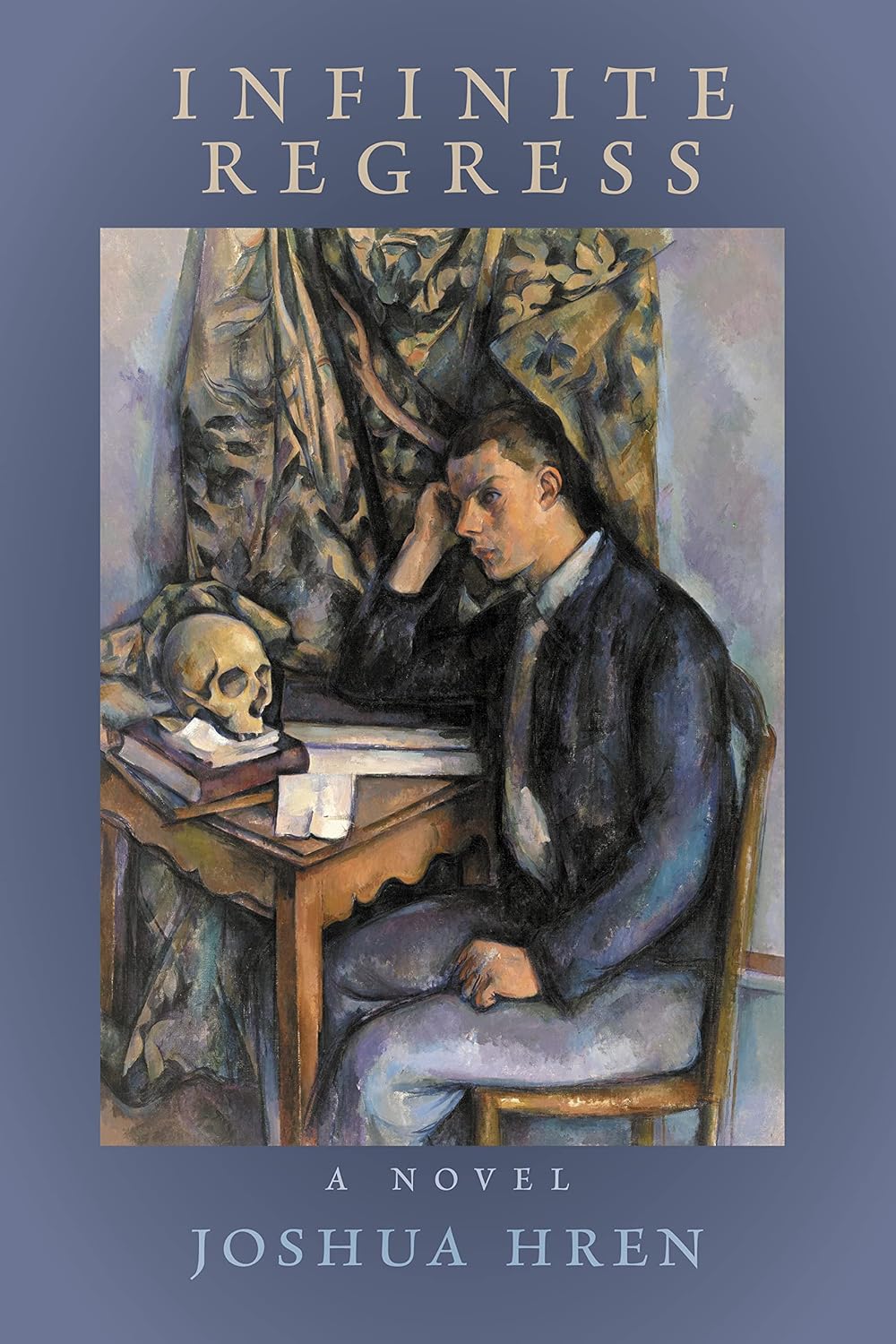Genre
Audience
Author’s Worldview
Year Published
2022
Themes
Reviewed by
Courtney Guest Kim
If I could direct your leisure hours, I’d have you first watch Kenneth Branagh’s production of Hamlet (1996), and then, with the defining tragedy of the English language still reverberating in your imagination, begin reading Infinite Regress. This metaphysical novel is a literary descendant of Hamlet. The protagonist, Blake Yourrick is a fool, and the son of a fool, in a long line of fools all the way back to poor Yorick, court jester to the king. The spelling of the name has changed, as so often happens between the Old World and the New. But this Yourrick is poor indeed: alas, overwhelmed by college debt. In the U.S.A. we have no king or crown prince. We have a government by the People. This puts us, the readers, into the role of Hamlet, heir to the throne, paralyzed by the horror of betrayal, but summoned to defeat the usurper.
Meet Theodore Hape, defrocked Jesuit priest and homosexual predator, who has leveraged apostasy to move up in the world and has made money off of scandal. For Catholics who have been waiting for someone to explain what happened between, say, 1950 and 2002, when the Boston Globe rolled out its series on sexual abuse in the Catholic Church: this is it, folks. Theodore Hape happened. By now there are a lot of documentaries and nonfiction books detailing various aspects of events in the U.S. and elsewhere. But here we have a fictional villain who explains his philosophy, and his theology, and his ideas on various other topics, so that we get a sense of how he justifies himself to himself. We also gain an understanding of what it is about him that young Blake Yourrick has found seductive. And his ideas certainly aren’t peculiar to Catholic apostates, nor merely to those of Jesuit affiliation. Christians from other denominations will recognize Theodore too. In fact, any rational person who knows what the West should be will find in this villain the silver-tongued spokesman for all the theories that are wreaking destruction around us.
Poor Yourrick does eventually break free from the philosophical seducer. He digs down to his roots, quite literally, and climbs out of the suicide’s grave. She laughs best who laughs last, and the victor in this story is the deceased but not defunct mother of the Yourricks, who exercises a spiritual influence all through the novel. In the end, it’s the pull of her sincere faith that reconciles her family members to each other, within the pale of the Church. So, Infinite Regress begins as a tragedy but does not end as one. The genre is contemplative realism, which for ordinary readers means that you can expect a story that hovers on the margins of realistic fiction but takes dips into what most people would describe as surreal moments. However, the language is so poetic, and there are so many literary echoes throughout, that “metaphysical” describes this novel better than “surreal.”
Metaphysical fiction blends stories about the inner, spiritual aspect of human experience with, in this case, the clashes between several philosophies. The most formidable ideological antagonist is the post-structuralist theory of Theodore Hape. But we also see the damage done by the atheist materialism of Blake’s father. Blake’s brother, Max is a sort of post-therapeutic therapist who no longer believes in the principles of psychoanalysis, so he is lost in a wilderness of his own. The pragmatic worldly wisdom of Uncle Dolt, who is the Polonius figure in the story, at least allows for some redeeming impulses of charity. And along the way from other characters we also get some feminism; the aberrant ideology of a White Lives Matter protest; and one or two idiosyncratic personal philosophies. Against all of these, the Catholic worldview of the narrative remains implicit, except for the discreet but crucial viewpoint of the good priest, Father Marto, and the nonverbal but heroic kid sister, Dymphna.
To buy, or not to buy?
For readers who feel alienated from the culture of their own society, assaulted daily by grotesque, all-too-real absurdities, this tale offers not only catharsis but a glimmer of hope. You won’t find another novel that provides so many insights into our painful cultural moment. If Blaise Pascal or Fyodor Dostoyevsky has been important to you, you’ll want to read it for the echoes of those authors. This is a novel for adults who yearn for poetic justice.



